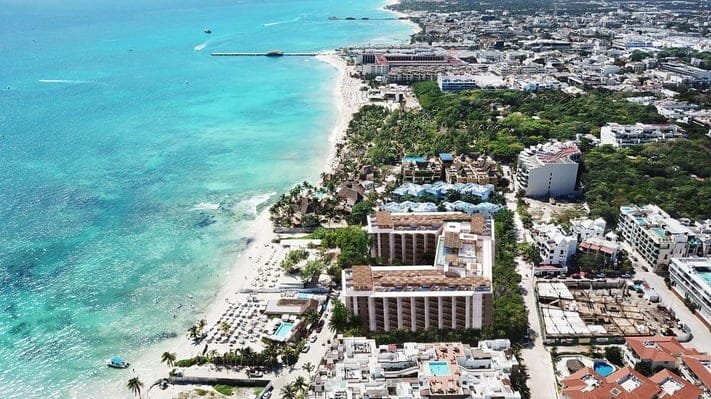Mexico City, Mexico — President Claudia Sheinbaum signaled support for raising property taxes where valuations are out of step with actual wealth—arguing that “those who have more should pay more, and those who have less should pay less,” as part of a drive to reduce inequality. She stressed that setting the predial remains a municipal responsibility.
Her remarks follow Playa del Carmen Mayor Estefanía Mercado’s announcement that the municipality (Solidaridad) will seek to update its cadastral tables for high-value land starting in 2026. Mercado has framed the move as correcting “inherited” distortions, citing examples in which some beachfront hotels and restaurants pay around 50 pesos per square meter while families in working-class areas pay up to 1,200 pesos for the same area.
Local industry groups have objected. Toni Chávez, president of the Riviera Maya Hotel Association, said business organizations formally requested a review but have not received a substantive response. He called on the city to present evidence for the 50-peso claim and warned the proposed changes could push some small hotels’ annual bills from roughly 300,000 pesos to as high as 7 million pesos—forcing closures or conversions to apartments. The Mexican Caribbean Hotel Council likewise urged dialogue and technical tables with authorities.

Beyond Playa del Carmen, Sheinbaum’s equity framing aligns with long-running national debates about Mexico’s weak take from property taxes relative to other countries. OECD data show taxes on property make up a small share of Mexico’s overall tax mix compared with OECD averages, underscoring pressure on municipalities to modernize cadastres and broaden their tax bases.
In Quintana Roo—where public finances are highly exposed to tourism cycles—business chambers argue a sudden jump in assessments could undermine competitiveness and jobs if not calibrated and phased in. City officials counter that correcting undervaluation at the top end would spare affordable housing and channel resources into services and infrastructure. Mercado has said the proposal is in public consultation and aimed at large hotels and high-value properties “paying below their fair share.”
Next steps typically involve municipal presentation of updated cadastral values and accompanying legal procedures before any change takes effect. As the draft is refined, stakeholders across the state’s flagship tourism corridor are pressing for technical justification, gradualism, and clear impact estimates—testing how Quintana Roo balances fiscal equity with economic competitiveness.
Discover more from Riviera Maya News & Events
Subscribe to get the latest posts sent to your email.
